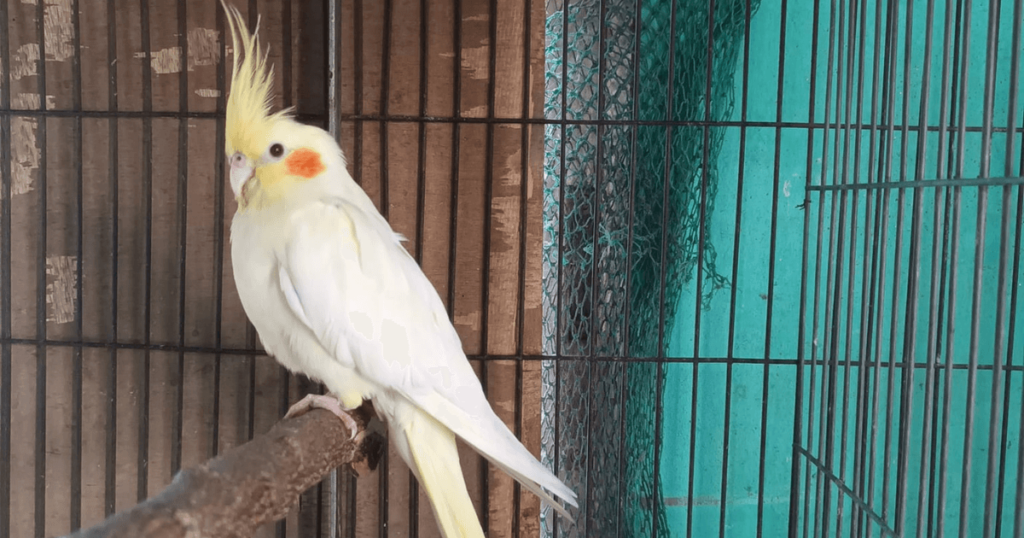Introduction
Captive birds bring joy and companionship to many households. However, there are instances when these feathered friends succumb to sudden death syndrome (SDS) in Captive Birds, leaving bird owners devastated and perplexed. In this article, we will explore the possible causes of SDS in captive birds, ranging from illnesses and viruses to heart failure and stress. By understanding the potential triggers behind this phenomenon, bird owners can take proactive measures to ensure the health and well-being of their avian companions.
Table of Contents
Illness or Virus
Birds, like any living beings, can fall victim to various illnesses and viruses. The sudden demise of a seemingly recovering bird can be particularly heartbreaking for bird owners. Regular visits to the veterinarian are crucial to catch and treat illnesses early on. Here are some common avian ailments and their associated symptoms:

Avian Goiter
Avian goiter primarily affects canaries, budgerigars, and non-domesticated birds. While the symptoms may vary, affected birds may experience sudden death, weight loss, depression, increased thirst, difficulty breathing, lack of egg production, and diarrhea.
Avian Tuberculosis
Avian tuberculosis is commonly observed in recently imported birds. Along with sudden death, affected birds may exhibit symptoms such as weight loss, depression, increased thirst, difficulty breathing, lack of egg production, and diarrhea.
Canary Pox
Although canary pox exclusively affects canaries, it can lead to sudden death. Birds with canary pox may experience breathing difficulties as a prominent symptom.
French Molt
French molt predominantly affects lovebird chicks, budgerigars, parrots, and birds with hooked bills aged between 5 and 6 weeks. Symptoms include tail and wing feather breakage, bruises, bleeding, excessive molting, and feather loss.
PDD (Proventricular Dilatation Disease)
PDD affects a wide range of parrot species such as macaws, African Greys, cockatoos, cockatiels, conures, Eclectus parrots, budgies, and Amazonian birds. Symptoms include chronic infections, pendulous crops, weight loss, whole seeds in droppings, lack of coordination, depression, sudden death, ataxia, seizures, and intermittent to constant regurgitation.
Pulmonary Sarcocystosis
Pulmonary sarcocystosis often affects cockatoos, cockatiels, and African parrots. This fatal illness remains asymptomatic until after the bird’s death. Birds suffering from this condition may have clear fluid coming from their mouths when lifted.
Heart Failure
Birds possess small hearts that beat at an exceptionally rapid pace. In the event of heart failure, birds can perish suddenly. If a bird’s heart beats faster than normal for an extended period, its body may become overwhelmed, unable to support the excessive blood flow. Additionally, the heart can fail if it struggles to handle the input and output of blood.
Stress
Birds, like any living creatures, can experience stress. Stress in birds can be caused by various factors, including their environment, social interactions, changes in their surroundings, and even improper handling. Environmental stressors such as loud noises, disruptions, or inadequate living conditions can contribute to their overall stress levels. Social stress can arise from isolation or a lack of proper socialization with other birds or humans. Changes in their routine, living space, or caretakers can also cause stress. Improper diet and nutrition, as well as rough handling or invasive interactions, can further exacerbate their stress levels. It is important for bird owners to be aware of these stressors and take measures to create a calm and enriching environment for their feathered companions. By providing a suitable habitat, appropriate socialization, a stable routine, and a balanced diet, we can help alleviate bird stress and promote their overall well-being.
Identifying Symptoms
As bird owners, it is crucial to be vigilant in observing any signs of distress or illness in our avian companions. The following symptoms may indicate potential health issues in birds:
Puffed-up Feathers
Birds fluff up their feathers to keep warm or when they relax for sleep. However, if a bird sits puffed up for extended periods throughout the day, it could be a sign of trouble.
Tail-Bobbing when Breathing
Birds exhibiting tail-bobbing motions while breathing may be suffering from respiratory issues or illness.
Refusal to Eat Favorite Food
If a bird’s favorite food remains untouched for more than a day, it could be an indication of an underlying health problem.
Half-Closed or Closed Eyes
Healthy birds typically keep both eyes wide open while awake. However, if a bird frequently closes one or both eyes without apparent external stimuli, it may be a sign of sickness.
Excessive Sleeping
Birds that sleep excessively, compared to their usual sleeping patterns, may be experiencing health issues.
Bad Posture when at Rest
Unhealthy birds often exhibit poor posture while at rest. For instance, small parrots usually sit somewhat vertically, and deviations from this posture may signal illness.
By being attentive to these symptoms, bird owners can promptly seek veterinary assistance and potentially save their avian companions’ lives.
Frequently Asked Questions
Q1. How can I prevent sudden death syndrome in my pet bird?
A1. Preventing sudden death syndrome involves regular vet check-ups, maintaining a stress-free environment, and promptly addressing any signs of illness or abnormal behavior.
Q2. Are there any specific signs that indicate a bird is sick?
A2. Yes, some common signs of illness in birds include puffed-up feathers, tail-bobbing while breathing, refusal to eat, half-closed or closed eyes, excessive sleeping, and poor posture when at rest.
Q3. Can stress alone cause sudden death in birds?
A3. Prolonged periods of stress can put significant strain on a bird’s heart, potentially leading to sudden death. However, stress is usually one of several contributing factors.
Q4. Is sudden death syndrome more common in certain bird species?
A4. While sudden death syndrome can affect birds of any species, it appears to be more prevalent in males, particularly among larger breeds.
Q5. What should I do if I suspect my bird is unwell?
A5. If you notice any concerning symptoms or behavior in your bird, it is important to consult an avian veterinarian as soon as possible. They can conduct a thorough examination and provide appropriate treatment.
Conclusion
Sudden death syndrome in captive birds is a distressing occurrence that leaves owners devastated and searching for answers. While the precise causes may vary, potential factors such as illnesses or viruses, heart failure, and stress can contribute to these tragic events. As responsible bird owners, it is crucial to prioritize regular vet visits, provide a stress-free environment, and be attentive to any abnormal behavior or symptoms displayed by our feathered friends. By understanding the underlying factors behind sudden death syndrome, we can take proactive steps to mitigate the risks and ensure the well-being of our beloved captive birds.
